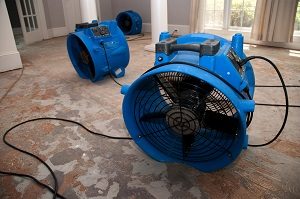By Brittany Skiles, Senior Underwriter
 Fire and water restoration contractors are a common class of business for environmental carriers to write. This class of business can be highly competitive for agents and brokers. The insureds for this class quite often shop around to make sure they are getting the best deal. As an agent or broker, will you simply be the lowest bidder on premium or can you provide other advantages, such as product knowledge, experience, and coverage options? Let’s explore what underwriters look for when underwriting this class of business and some of the competitive advantages that brokers can bring to the table when obtaining quotes for the insured.
Fire and water restoration contractors are a common class of business for environmental carriers to write. This class of business can be highly competitive for agents and brokers. The insureds for this class quite often shop around to make sure they are getting the best deal. As an agent or broker, will you simply be the lowest bidder on premium or can you provide other advantages, such as product knowledge, experience, and coverage options? Let’s explore what underwriters look for when underwriting this class of business and some of the competitive advantages that brokers can bring to the table when obtaining quotes for the insured.
What will the underwriter look for?
When underwriting fire and water restoration accounts, underwriters will consider many factors. They will look to see if the account is qualified. Do they have prior experience in this industry? If the company or owners have prior experience in this industry they are a better risk. Do the company or employees have water extraction or drying training from a well-known and reputable organization? Some states require licenses to perform the associated mold and abatement. Is the insured properly licensed? Does the insured have lots of past claims? If so, loss runs may show the potential for the insured to have more future claims. Underwriters may also ask to review financials to ensure they’re writing a financially stable company. Knowing what underwriters will review prior to quoting an account can help brokers and agents educate their clients and gather enough information up front to get a good quote.
Coverage specifics for fire and water restoration contractors
Some insureds purely compare prices and may not understand the coverage differences. It’s important that brokers and agents point out to the insured other considerations such as coverage enhancements, if the policy is auditable, and if the carrier can write other lines of business. Some common coverage enhancements for fire water restoration contractors include but are not limited to: Bailees coverage, Lost Key coverage, Emergency Remediation coverage, Transportation Pollution Liability, and Non-Owned Disposal Site coverage. As a broker, if you’re presenting a quote with some or all of these coverage enhancements, it’s an advantage over a competitor’s quote that does not have them. Finding markets that will write Workers Compensation or Auto for fire and water restoration contractors can be difficult. If a GL carrier can also offer these lines, it’s an advantage to placing the GL with that carrier. Writing multiple lines for an account can help an agent retain the account for the long-term and helps to streamline pricing and servicing. If a competing agent is trying to win over that account, they must compete against multiple lines in order to win the account, which is harder than competing against only a single line of business.
The AM Best rating of a carrier is also an important factor to consider when placing a policy. The rating shows a carrier’s financial size and how financially stable or unstable the carrier is for the long term. Poorly rated carriers could go bankrupt and therefore be unable to pay out future claims. It’s best to place policies with only highly rated and financially stable carriers.
Carrier experience
It is also critical to discuss the carrier’s experience specifically with fire and water restoration contractors. Has the carrier been writing this class of business for decades or did they enter this segment just a few years ago? Sometimes carriers enter a new segment of the marketplace for a couple years and determine it’s not a good fit, and they exit the segment just as quickly as they entered. It can be problematic to place an insured with a carrier one year, just for the insured to be non-renewed the next term.
The next time you have a fire and water restoration contractor, keep in mind all the important considerations for writing these accounts. PartnerOne Environmental is here to help you navigate any specific coverage needs your insured may have. For more information, please contact us.
